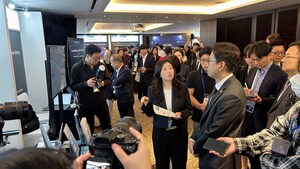
CODIT Policy Institute Releases Issue Paper on U.S. 50% Tariffs on Aluminum and Copper, Urges Korea's Strategic Response
- CODIT issue paper assesses impact of U.S. 50% tariffs on Korea's non-ferrous metals sector, revealing structural vulnerabilities
- Examines global responses and outlines five policy recommendations for Korea
SEOUL, South Korea, Oct. 2, 2025 /PRNewswire/ -- The CODIT Global Evidence-Based Policy Institute (Executive Director Hae-young Song), the research arm of AI-powered policy platform CODIT, today released an issue paper titled "U.S. Imposes 50% Tariffs on Aluminum and Copper: Strategic Responses for Korea." The paper analyzes the impact of the Trump administration's new tariffs on Korea's non-ferrous metals sector, examines responses from other major economies, and sets out concrete policy recommendations.
Korea's non-ferrous metals industry, valued at KRW 57 trillion, remains structurally vulnerable as it is dominated by small and mid-sized firms. Unlike steel, economies of scale are difficult to achieve, and companies face constraints in R&D, ESG compliance, and supply chain management. The industry's reliance on imported raw materials for aluminum and export-heavy dependence for copper makes it particularly exposed to the new tariffs.
According to the paper, the 50% tariffs will sharply cut exports of aluminum sheet, foil, and extrusions, while copper tubes and bars may become virtually unsellable. Korean producers are thus facing a "triple burden": collapsing U.S. exports, rising costs from market diversification, and intensifying pressure to localize production. Beyond direct trade losses, the tariffs are also driving supply chain realignments and forcing companies to reconsider global investment strategies—posing ripple risks for key downstream sectors such as automobiles, semiconductors, and EV batteries.
Drawing on responses by Canada, China, Australia, and India—including retaliatory tariffs, WTO action, fiscal support, and diversification measures—the Institute proposes five policy recommendations for Korea:
- Secure tariff reductions and exemptions through U.S. negotiations.
- Strengthen bargaining power via bilateral and multilateral alliances.
- Provide domestic relief to minimize industry damage.
- Enhance long-term competitiveness through supply chain and data management.
- Ensure institutional support from the National Assembly.
"The 50% tariffs on aluminum and copper pose a serious threat to Korea's strategic industries, yet they have drawn far less attention than steel," the Institute stressed. "Korea must adopt a dual-track approach: negotiating aluminum-specific concessions with the U.S. while simultaneously reinforcing supply chain resilience through long-term policy tools."
The CODIT Global Evidence-Based Policy Institute regularly publishes issue papers on trade, ESG, AI, healthcare and pharmaceuticals, and the circular economy, and hosts policy seminars with senior experts from the National Assembly, government agencies, and research institutes to support corporate responses to regulatory change.
SOURCE CODIT Corp.







Share this article